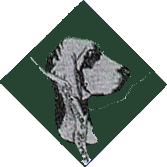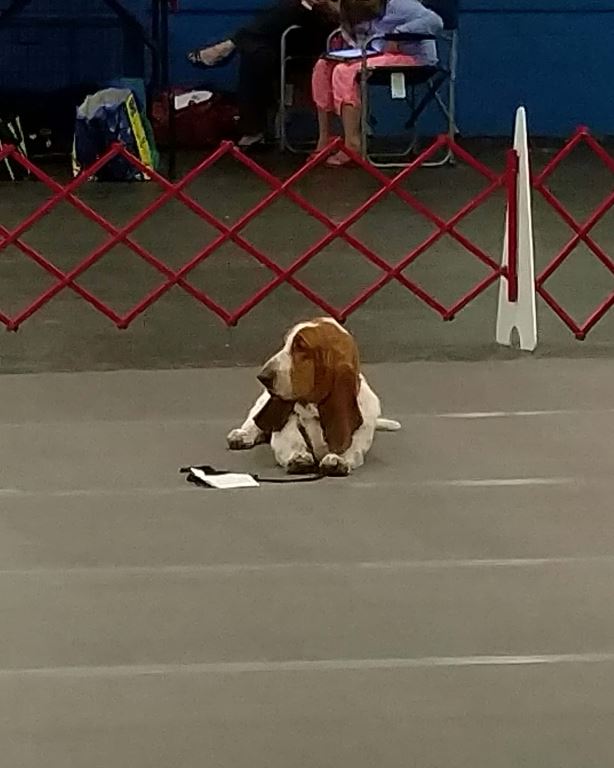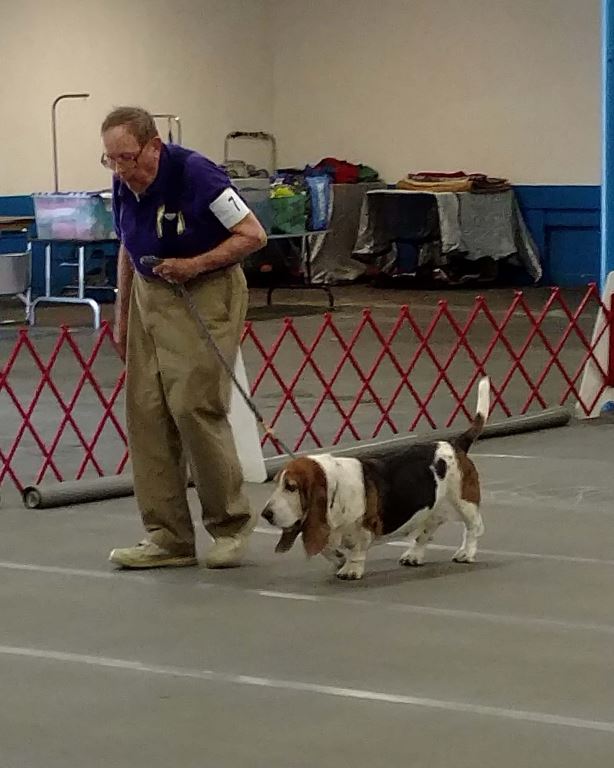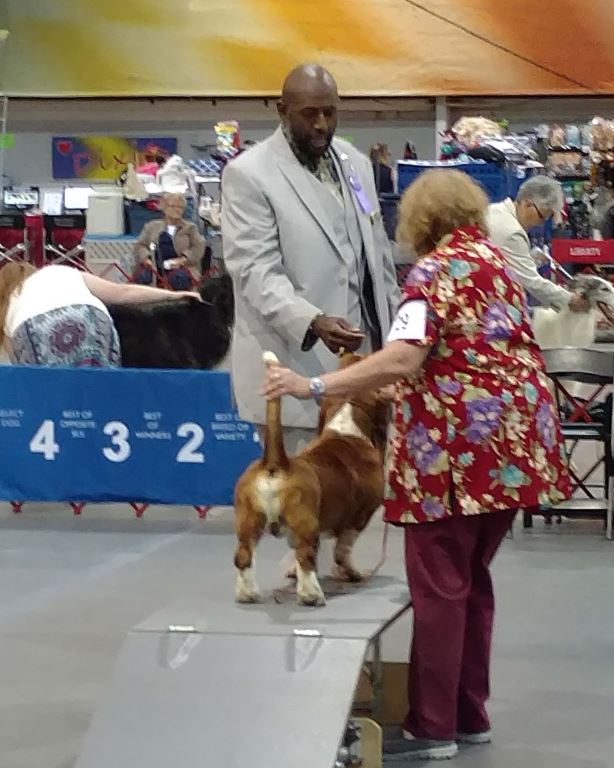
The fact that you are reading this indicates that you care about purchasing a sound, healthy, good-tempered puppy. The purchase of a dog is a lifetime commitment. That is, your commitment for the life of the dog. The following information is provided to you by the Potomac Basset Hound Club to assist you in deciding whether or not you have found a responsible breeder from whom to purchase this newest member of your family.
There are numerous factors to consider when searching for a breeder. This document is not a comprehensive list, nor will all good breeders necessarily meet every criterion mentioned. We hope the information provided here will be one more tool to assist you in your search.
First and foremost, take your time. The purchase of a puppy must not be a spur-of-the-moment decision. One of the reasons breed rescues exist is because of “buyers’ remorse.” If you are unfamiliar with Basset Hounds, especially with puppies, it’s a good idea to ask a knowledgeable friend to go with you, and, likewise, feel free to contact us. We encourage everyone interested in Basset Hounds to join us at the Potomac Basset Hound Club; we are here to help you find a reputable breeder.
Basset hounds are adorable, but they are not the right breed for everyone (no dog is). They have a special character, all their own, a character that is very different from that of a Labrador Retriever, or a Jack Russell Terrier, for example. A basset hound’s heritage provides a degree of independence and perseverance that many people consider “stubborn,” and others consider “stupid.” Basset hounds require patient housebreaking, and they are not reliable off-lead (the nose is always working!). A basset hound should not be expected to hang around the yard unless the yard is well-fenced. And while basset hounds are wonderfully patient with young children, most are not interested in games such as “fetch.” Basset hounds DO make excellent tracking dogs, and they are fabulous snuggly companions. They will charm everyone they meet.
Ask yourself the hard questions—is this the right breed for my family and our lifestyle? Is this the right time in our life to bring a dog into the family? Do I have the time to commit to this dog, now and for the next 12-14 years?
If your answer to these questions is “no,” then that is fine—better to come to this conclusion now than to wait until after a pup is in your home. If your answer is “yes,” then read on.
Finding a good breeder is the start of a relationship that will last for the life of the dog. The person you choose will be someone you can turn to with questions, for advice, for help with your dog for many years to come. Hence, you should seek a breeder with whom you will be comfortable working for many years.
A good breeder should be more than willing to spend time with you on the phone or in person. They should be will to explain the Basset Hound breed, and its qualities, good points and bad.
What should you look for when you go to visit your breeder? The dogs should appear well cared for. That is, they should be clean, their nails should be short, their coats bright, their ears clean. Their kennels should be clean. Do you see fresh water for them?
Ask to see the dam, and if he is on the premises, the sire as well. However, it is a myth that good breeders always have the sire on the premises. Many good breeders look throughout the country for the best sire for their puppies. Sometimes, having the sire on the premises merely means the breeder happened to own two dogs of the opposite sex which they mated. The puppies and the dam should look healthy and well-cared for. It is not uncommon for a basset to be protective of its puppies or of its territory, although many are not.
Don’t be disappointed if the dam or sire does not greet you enthusiastically, although aggression towards a person should never be tolerated. Aggression and excessive shyness are both inherited traits, so if either parent of the puppies shows aggression or extreme shyness towards you, look elsewhere. Maternal protection may occur in dams with very young puppies, but by the time the puppies are weaned, this should pass. However, if the dogs seem unsocial, cringe in fear on your approach, or if the puppies run from you, huddle together in a corner of their area, etc.; this should raise questions in your mind about the socialization of these dogs.
A good breeder does not over breed a bitch. That is, they may only breed a bitch once every two or three years. Ask your breeder how often they breed their bitches. If the answer is—every time she goes in heat, or even once a year, then this should raise a warning sign.
A good breeder is seeking the best possible homes for their pups. Hence a good breeder will ask you many, many questions, about your experience with dogs and with the Basset Hound breed, about your work schedule, and about your family. Indeed, a good breeder may well ask you more questions than you ask them; in fact, if you feel as if you’ve just been grilled, it’s a good thing.
A good breeder wants to know all about you in order to decide if one of their puppies would be a good choice for you. As well, a good breeder will make sure you do your homework, provide you with resources to learn more about the Basset Hound breed, and will be happy to spend time with you discussing this breed, its characteristics, health, and temperament.
Make yourself familiar with the Basset Hound standard. You can find it in the American Kennel Club’s THE COMPLETE DOG BOOK, and on the American Kennel Club web site, at http://www.akc.org/breeds/recbreeds/basset.cfm. Disreputable or unethical breeders will try to sell you the “rare blue basset.” So called blue bassets are prone to a condition called color dilution alopecia, in which the hair coat is sparse and unpleasant to the touch. Other health problems have been reported in this color, and no reputable breeder will breed for this trait. As well, bassets do not normally have blue eyes. And if someone is selling you a “unique blue-eyed basset”—don’t buy it. Blue eyes are indicative of possible genetic weaknesses that can lead to serious health issues.
A good breeder will keep records on his breeding program, will be able to discuss with you the philosophy of his breeding program, and will provide you a history of his line of breeding.
It’s not bragging when a breeder tells you about the pedigrees of his dogs. There are far too many irresponsible breeders. A responsible breeder will make the decision to breed based on several criterions. One of these criterions is the background of a dog as reflected in Championship titles of record, either in the show ring or on the field. A pedigree that contains five generations of Champion titles indicates a line of breeding that shows the success of efforts to improve the Basset Hound breed.
A good breeder is going to talk to you about the health of the Basset Hound breed. This is another criterion used by good breeders to determine whether to breed a particular dog or not. Basset hounds are in general healthy, but they are prone to some genetic diseases, such as von Willebrands (a bleeding disorder), Thrombopathia, (a blood coagulation disorder), glaucoma (increased pressure in the eye leading to blindness), or disk rupture and other spinal problems. As well, Addison’s disease and epilepsy have been diagnosed in bassets. An ethical breeder will tell you if any of these illnesses have occurred in his line. As well—and this is important—an ethical breeder will tell you what, if any, testing to screen for these sorts of illness has been done on the dam and on the sire.
Not testing is not necessarily a sign of a bad breeder, but more and more breeders today screen their dogs in advance of breeding. These tests can include—von Willebrands blood test, gonioscopy (eye test), thyroid test, and a test for Thrombopathia, though this test is rarely performed. Since only one lab in the country performs it, and the samples must be fresh, it is outside the scope of most breeders. However, if you mention this disease to your breeder, and he doesn’t know what you are talking about, then this may be an indication that the breeder is not well-informed as to possible health issues of the Basset Hound breed.
Many breeders today will do temperament testing of puppies. This is an excellent practice, and helps a breeder determine which potential homes will be the best match for that puppy’s personality.
A good breeder is not going to let a puppy go home with you until it is old enough—this could be as soon as 8 weeks, or more commonly today, 10 weeks or more. Anyone who is willing, without question, to sell you a dog less than 8 weeks of age is NOT a responsible breeder.
A good breeder is going to ask a reasonable price for his pups. What is a reasonable price? Well, considering the amount of time that goes into all aspects of breeding, including the work to get that five generation Champion pedigree, the testing and screening done in advance of mating, the testing done once the litter is on the ground, and the amount of time and effort committed to this process, do not be surprised to pay several hundred dollars. The quality of the dog will determine the price. Several hundred dollars is little to pay for many years of enjoyment and love. REMEMBER—you get what you pay for!
Finally, a good breeder is going to want to stay in contact with you. He will insist upon a written contract, and many breeders today will stipulate that if you cannot keep the dog you are to give him first right of refusal for the return of the dog, or to directly return the dog to him, no matter the age of the dog.
A good breeder cares about his pups. If he is selling a pup to a pet home, he will sell that pup on a mandatory spay/neuter contract with limited registration. This is not a criticism of the quality of the dog as a loving family pet, but rather is the breeder’s judgment that this particular dog does not meet the rigorous standard for breeding.
A good breeder will send you home with a diet sheet, a sample of the pup’s dog food, and a good puppy packet. Puppy packets contain information on what to expect in the coming days and weeks, how to housebreak your pup, etc. A good breeder wants to help you, will be open to your questions, and will work with you as you introduce and raise this new member of the family.
So how do you find a reputable breeder? This Club will happily provide you with a list of local breeders who meet the qualities mentioned above. You can also contact the Basset Hound Club of America, whose link is on the Home page of this website, for a list of any breeders in your area. Where you won’t find a reputable breeder is in the newspaper, or at a pet store, or only over the Internet.
And finally, given everything written above, why should you consider rescuing a dog rather than purchasing a puppy? Many people come to rescue because they do not want to live through the housebreaking, shoe chewing, and puppy behavior. Rescue dogs are already spay/neutered and for the most part, have been behaviorally assessed.
But the main reason to rescue a dog is because it’s a kind and compassionate act. These dogs are living beings that need loving and caring homes. Whatever your choice, adopting a rescue dog, or purchasing a puppy from a reputable breeder, you are contributing to the solution, rather than to the problem.





